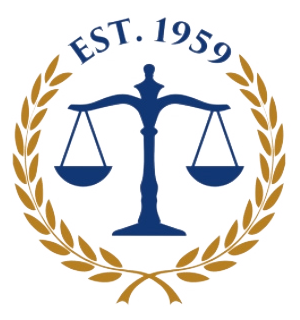Golf carts seem harmless compared to traditional vehicles, but they cause thousands of injuries each year in Texas. Whether you’re hurt in a golf cart accident on a private residential community’s streets, a public roadway, or a golf course, the question of who pays for your medical bills and other losses depends heavily on where the accident occurred and who was at fault. The distinction between private and public property creates different liability frameworks that affect your ability to recover compensation.
At Byrd Davis Alden & Henrichson, LLP, we’ve handled complex premises liability cases involving recreational vehicle accidents on both private and public property. With over 65 years of experience and more than $100 million recovered for clients, we know how to identify all potentially liable parties and build cases that hold them accountable under Texas law.
Golf Cart Regulations and Accident Settings
Texas law permits golf carts on certain public roads with posted speed limits of 35 mph or less, and only if authorized by the local municipality. However, many accidents occur in settings where public road regulations don’t apply, such as private golf courses, gated communities, retirement villages, and resort properties.
The location of your accident determines which legal framework applies. Accidents on public roadways fall under traffic laws and vehicle accident statutes. Accidents on private property often involve premises liability principles, where property owners have duties to maintain safe conditions. ATV and off-road accidents share similar liability considerations when they occur on private property.
Liability on Public Property
When golf cart accidents occur on public roads, standard traffic laws generally apply. The driver owes a duty to operate safely, follow traffic signals, and avoid reckless behavior. If a negligent golf cart driver injures you, you may have a claim against that driver just as you would in any vehicle accident.
Public entities managing parks or streets where golf carts operate also have duties to maintain safe conditions. However, Texas law provides governmental immunity that limits lawsuits against cities and counties. The Texas Tort Claims Act creates narrow exceptions where you can sue government entities for negligence, typically involving dangerous conditions of public property.
Insurance coverage becomes critical in public roadway accidents. Many golf cart owners maintain homeowners’ insurance that extends some liability coverage to golf cart operation, though coverage limits are often low.
Liability on Private Property
Private property accidents involve premises liability principles. Property owners have duties to maintain reasonably safe conditions for people lawfully on their property. This might include maintaining cart paths free from dangerous obstacles, ensuring adequate lighting, posting warning signs near steep grades, and implementing safety rules for golf cart operation.
Your status as a visitor affects the duty owed to you. Business invitees, such as customers at a golf course or resort guests, receive the highest level of protection. Property owners must inspect for hazards and warn about or correct dangerous conditions. Golf cart rental operations may face additional liability when businesses rent carts without providing adequate safety instructions or rent damaged equipment.
Driver Negligence and Comparative Fault
Driver negligence often plays a central role regardless of property type. Common forms include:
- Speeding: Operating at unsafe speeds creates rollover risks and reduces reaction time.
- Impaired operation: Alcohol consumption is common on golf courses, but intoxicated golf cart operation is dangerous.
- Distracted driving: Using cell phones or engaging in horseplay while operating leads to collisions.
- Overloading: Exceeding passenger capacity makes carts unstable and harder to control.
Texas follows modified comparative negligence rules. If you’re found partially at fault for your injuries, your compensation is reduced by your percentage of fault. You can still recover as long as your fault doesn’t exceed 50%.
Multiple Potentially Liable Parties
Golf cart accident cases frequently involve multiple defendants. Potentially liable parties may include the golf cart operator, property owners who failed to maintain safe conditions, golf cart manufacturers if defects caused the accident, and maintenance companies that serviced the cart improperly.
Commercial establishments such as golf courses or resorts often carry substantial insurance coverage. However, these businesses vigorously defend claims, often arguing that injured parties assumed inherent risks. The complexity of proving negligence in a personal injury case increases when multiple parties share fault.
Get Strong Representation at Byrd Davis Alden & Henrichson, LLP
Golf cart accident liability depends heavily on where the accident occurred, who was driving, and what safety failures contributed to your injuries. Recognized by U.S. News & World Report as one of the Best Law Firms in the U.S., Byrd Davis Alden & Henrichson, LLP brings 65 years of trial experience and a 98% success rate to every case we handle. Our true personal injury trial lawyers have the courtroom skills that insurance companies respect, often enabling us to secure fair settlements without trial.
Don’t let property owners or insurance companies minimize your injuries or unfairly shift blame. Contact us today to discuss your golf cart accident case and learn how we can help you recover the compensation you deserve.

